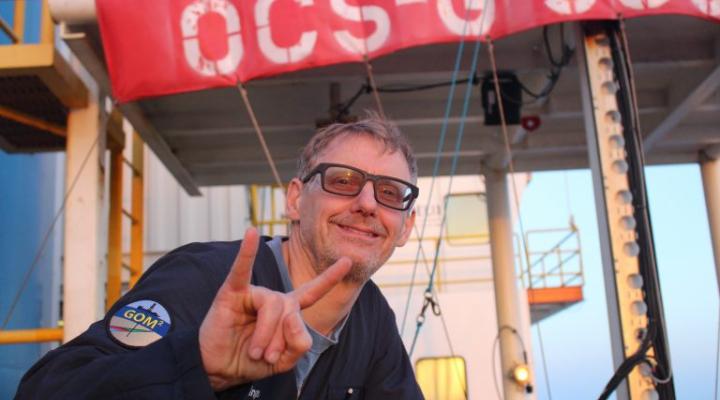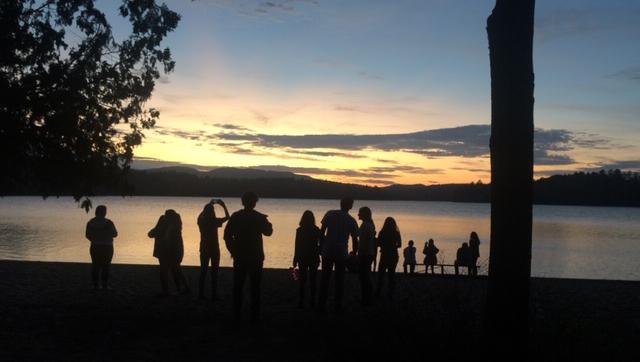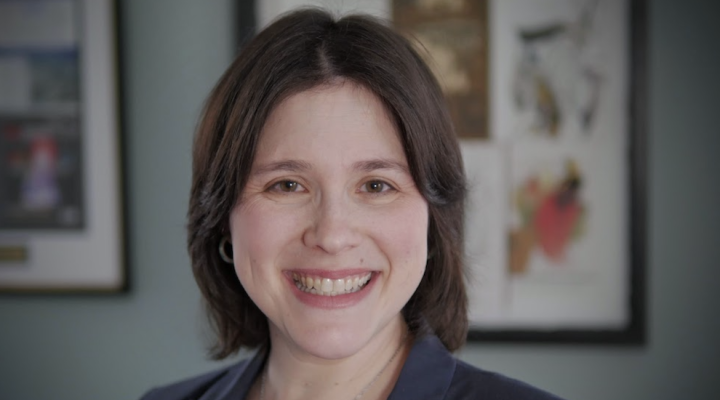By Erin Philipson
Richard Chuchla ’78, Director of the Energy and Earth Resources graduate program at the University of Texas and a founding member of the Earth and Atmospheric Sciences Advisory Council, recognized early the importance of philanthropy. As a senior at Phillips Exeter and a full scholarship student, the Academy encouraged students to make their first gift at graduation -which in Chuchla’s case was five dollars. He reflects that the formula for successful fund raising is simple: instill a culture of giving early, seek broad participation and inspire contributors to give what they can.
Over the years, Chuchla and his wife, Elizabeth, have been generous donors to Cornell, supporting the College of Arts and Sciences and Earth and Atmospheric Sciences (EAS). Chuchla’s commitment to Cornell and his previous experience and chairmanship of the Advisory Council to the Geological Foundation at the University of Texas, convinced him of the value of alumni engagement. It inspired him to suggest an advisory council for EAS to then department chair, Terry Jordan. Chuchla directed the council for the first five years, working to bring outside perspectives to the department’s thinking, and has since been an active member. A distinguished founding member of the AC was Frank Rhodes, himself a geologist and former president of the University and benefactor of the department.
Chuchla, who was also a scholarship student at Cornell, describes his time there as central to his personal professional fulfillment and success. “My experience as a geology major,” says Chuchla, “awakened in me a curiosity about Earth and a commitment to learning that remains with me today.”
In 2016, Chuchla’s philosophy and formative experience as an undergraduate in EAS led him to give a founding gift that created the EAS 2020 Vision Endowment, a fund that would serve as a foundation for the future and could be used to support important initiatives in the department. Several very generous gifts came from fellow Advisory Council members who joined him in launching the first stage of the fund. “Our goal was to build the nucleus for future giving. Large gifts are important but the success of this fund depends on the broad participation of EAS alumni and friends.”
In the future, Chuchla hopes the endowment will be used to expand critical research areas including climate and sustainability, and responsible development of energy and mineral resources. “In a great research program, you have highly motivated faculty who are doing great research and bring that excitement back to the classroom when they are teaching undergraduates”.
The Vision Endowment has already impacted Earth and Atmospheric Sciences in a number of ways. It has been used to help modernize and update necessities for course instruction like the funding of updates for the student microscopes in the Mineralogy and Petrology Lab in Snee Hall.
The Vision Endowment has also been used to complement a set of microscopes gifted by Advisory Council member, Jonathan Brewer ’81, for use in undergraduate course instruction. The Vision Endowment allowed Earth and Atmospheric Sciences to purchase iPads, stands and iPad pencils to support the new microscopes, providing the department the opportunity to stretch the gift even farther and make huge impacts on the way students learn.
The new microscopes are an advantageous addition to the department, affording the ability to change the way students work in the classroom. Instead of students trying to remember or sketch what they see through a microscope, they will be able to take photos and reference them while working outside of class. The use of the camera and image analysis will be done on the iPad that connects to the microscope.
The Vision Endowment has provided field experiences for students in need, supporting travel for students in EAS 4790: Paleobiology to attend the Symposium on Ancient Life at the Smithsonian in Washington, DC.
Earth and Atmospheric Sciences was able to set up a live digital feed of seismographic data and maps thanks to equipment funded by the Vision Endowment. The LED display offers a modern way to monitor all of Earth’s geologic activity in real time and replaces an old seismograph that was decommissioned in 2019. According to a Cornell Chronicle article, students can easily tap into the data and do throughout EAS 7800, which is taught by Geoffrey Abers, the Chair of Earth and Atmospheric Sciences.
“People have been telling me how they are amazed by so much geologic activity and tell me, ‘I didn’t realize there were so many quakes,’” said Abers in the article. “They’re asking me really interesting questions about aftershocks and foreshocks and why earthquakes are clustered in some places and don’t occur in others.”
Looking forward, the fund will continue to target the student learning experience, and facilities in support of ground-breaking research. Specific priorities include equipment for state-of-the-art field courses and undergraduate field course fellowship support, scholarships for undergraduate participation in summer programs for under-represented groups who otherwise wouldn’t have the opportunity to participate, and support for the new EAS Project Team, CU GeoData. Other priorities include analytical chemistry equipment for classroom use, lab and field equipment for research labs, specimen archival facilities and computer lab support.
“The most pressing issues of our current society are intimately tied to the earth and atmospheric sciences. “Let’s prepare our students to solve the vexing but exciting challenges of a sustainable future for Earth,” affirmed Abers.




